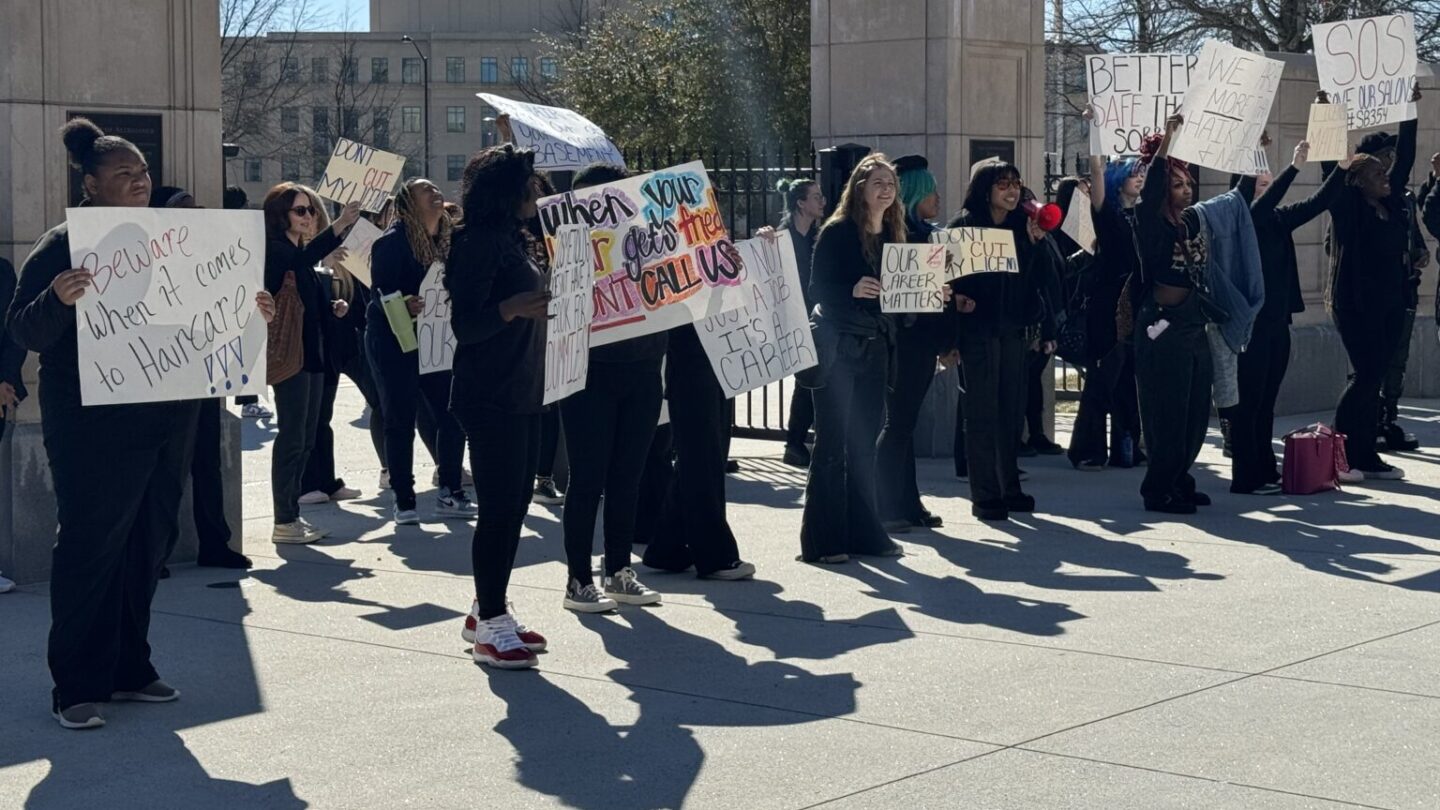Georgia hair stylists could get easier path to hanging out shingle

A controversial bill that would eliminate the required state license for those who want to style hair and apply makeup narrowly passed the House on Tuesday.
Senate Bill 354, sponsored by Perry Republican Sen. Larry Walker III, would open access for those who want to run haircare and makeup businesses without licensing. The bill is limited, meaning that those who use chemical products or extensive heat would still need a proper cosmetology license. But future beauticians could now skip onerous and time-consuming training to start their practices.
Cosmetologists are now the only workers who can perform services like cutting hair, doing facials and applying nails and register as a legally verified business in the state. If someone wanted to be a licensed cosmetologist, they’d have to go to school to learn the profession, which isn’t cheap. It can cost thousands of dollars, with the high end as much as $21,895. The schools often offer financial aid for students who can’t pay the bill upfront.
Training also requires at least 1,000 hours of hands-on experience to be licensed. Marietta Republican Rep. Ginny Ehrhart said she considered the licensing requirements to be barriers for women to create small businesses.
“Research has shown that some of the greatest occupational licensing burdens for lower-income workers in Georgia affect those in the beauty industry,” said Erhart.
Supporters said that the bill would create more jobs for Georgians and encourage small businesses. They pointed to the film and retail industries, which allow people without licenses to apply makeup and style hair at the consumer’s discretion.
A bill designed to open the floodgates for lower-income women to run businesses would usually appeal to Georgia Democrats. It’s a different story with this proposal.
Democratic Black female lawmakers and cosmetologists said that the bill would be dangerous to Georgians’ hair and their health.
They flagged concerns about the lack of safety regulations if the bill passes. Sanitation is taught in cosmetology school and without that training, workers without a license might not know how to sterilize equipment properly. That includes people who work near sensitive areas, such as the eyes or the face. Lilburn Democrat Rep. Jasmine Clark, a scientist with a Ph.D. in microbiology, said uncleaned makeup brushes can be as dirty as a toilet seat.
“This is a deadly bill,” said Clark.
Atlanta Democrat Rep. Park Cannon said that the lack of knowledge on different hair textures by lawmakers informed their position on the bill. African hair textures are more fragile, according to a study done by the National Institute of Health. It requires different applications of heat, washing and styling in comparison to a finer hair texture.
Critics of the bill say finding stylists who can work with Black people’s hair without causing damage could be harder without regulation.
Cosmetologists have been split on the measure. Protesters gathered outside the Capitol earlier in the 2024 legislative session chanting phrases like “Don’t call us when your hair falls out.”
Other cosmetologists were supportive of the measure, said Atlanta Republican Rep. Mesha Mainor. She said that some apprentice cosmetologists told her that they cannot shoulder the cost of school and they are in favor of the bill.
But the bill speaks more to Walker’s larger efforts for deregulating licensing requirements in Georgia. Last year, he led the Senate’s Occupational Licensing Study Committee, which examined ways to relax regulations to increase jobs.
Something that both the committee’s report and Ehrhart echoed was that this measure would not increase risks to public safety. In the report, Americans for Prosperity Employment Policy Fellow Austen Bannan quoted research that showed that stricter licensing led to minimal effects on public health.
The bill cleared the House with a 96-to-76 vote, with some Republican support. The bill returns to the Senate to reconcile an amendment by Mainor to remove curling and flat irons to the allowed tools that non-licensed stylists could use.
This story was provided by WABE content partner Georgia Recorder.








